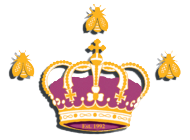This was an interesting article we found relating to honey being ultra fine filtered to remove pollen. We at The Hive Honey Shop are against this practice. We believe that not only does it rob the natural honey of so much of its nutritional value, but renders it useless for those wishing to help with their hayfever. Now we learn others do this to mask where the honey originates from. Read on:
Honey Laundering
Recent tests conducted by Food Safety News show that about 75% of the honey sold in US grocery stores isn’t officially honey.
The results show that the pollen frequently has been filtered out of products labeled “honey.” The removal of these microscopic particles from deep within a flower would make the nectar flunk the quality standards set by most of the world’s food safety agencies.
The food safety divisions of the World Health Organization, the European Commission and dozens of others also have ruled that without pollen there is no way to determine whether the honey came from legitimate and safe sources.
In the U.S., the Food and Drug Administration says that any product that’s been ultra-filtered and no longer contains pollen isn’t honey. However, the FDA isn’t checking honey sold here to see if it contains pollen.
Anyway, there is speculation that the pollen removal is masking the use of unregulated, uninspected, and illegally imported Chinese honey.
Eric Wenger, director of quality services for Golden Heritage Foods, the nation’s third largest packer, said his company takes every precaution not to buy laundered Chinese honey.
“We are well aware of the tricks being used by some brokers to sell honey that originated in China and laundering it in a second country by filtering out the pollen and other adulterants,” said Wenger, whose firm markets 55 million pounds of honey annually under its Busy Bee brand, store brands, club stores and food service.
“The brokers know that if there’s an absence of all pollen in the raw honey we won’t buy it, we won’t touch it, because without pollen we have no way to verify its origin.”
